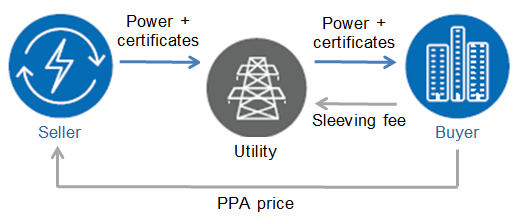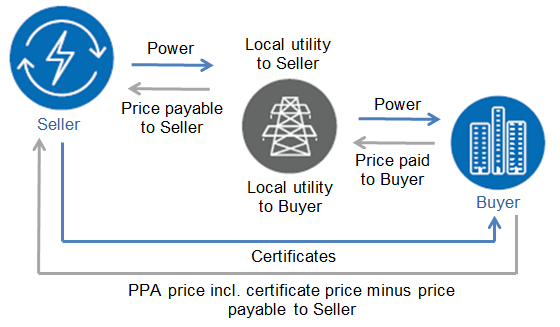This article was originally published in PV Tech Power.
The heaving up of the drawbridge for new entrants to the UK’s Renewables Obligation (RO) scheme at the end of March signified another milestone in a global trend of shrinking government incentives for utility scale renewable energy projects. The end of the RO scheme will be followed by the phasing down of production tax credits and investment tax credits that have galvanized the US clean energy market in recent times. Removal or tightening of government support for the solar PV sector is a worldwide paradigm driven by a number of conspiring factors including economic uncertainty, low fossil fuel prices, a significant reduction in the levelised cost of solar PV energy and the success of competitive auction procurement as a method to drive down and achieve record-breaking low tariffs.
But with increasing pressure to reduce their carbon footprint, private sector companies have not stood idly by while governments ice direct support for the decarbonisation of national grid networks. Corporate and institutional electricity customers in jurisdictions around the world have together taken meaningful action to develop their own contractual structures and financial products to pursue strategic and commercial sustainability priorities and to “future-ready” themselves for the disruption affecting the energy sector. More than 40% of Fortune 500 Companies and at least 60% of Fortune 100 companies now have targets relating to renewable energy procurement, energy efficiency or cutting GHG emissions1 . The Corporate Renewable Energy Buyer’s Principles have been established to promote collaboration amongst 62 major companies when buying renewable energy. Similarly the RE100, a club of 89 of the world’s most influential businesses each committed to procure 100% renewable energy, is an example of how the private sector is working to increase the demand for, and delivery of, renewable energy. Last year, Google, a member of RE100, confirmed that it would reach 100% renewable energy coverage of its global operations in 20172. The likes of Google, Apple, Facebook and Amazon are leading the charge, however more corporate giants continue to join the movement such as Anheuser-Busch InBev who signed up in March this year with a commitment to secure 100% of its electricity (amounting to about 6 teraWatt-hours of electricity per year)3 from renewable sources by 2025.
Corporate sustainability strategies to decarbonize can involve purchasing renewable energy certificates or procuring green tariffs from utilities (if available), but companies are also looking for tangible ways to demonstrate their environmental commitment and to achieve some “additionality” by bringing new renewable energy projects online.
Captive projects can be on-site as a primary or back up source of power to mines, processing plants, warehouses, data centres, offices or shopping malls for example. In such cases, the buyer will purchase the power generated by the plant under a “behind-the-meter” power purchase agreement negotiated bilaterally with the seller. They can be built as hybrids in conjunction with conventional power engines and in some jurisdictions it may also be possible to sell on excess power that is not required by the buyer to the utility through net-metering arrangements. Target, the US department store, is currently the top installer of solar power in the US with 147MW installed across 300 stores4.
Such on-site, off-grid solar PV projects are also popular in many sun-drenched developing countries where businesses and communities are beleaguered by scheduled load shedding, unexpected blackouts, electricity price hikes, forced load curtailment or simply no local access to the national grid. Distributed generation, on-site with a reliable connection can provide cheap and clean power for the buyers; and for the developer, the negotiated tariffs are invariably better than those being secured under state procurement programs at the moment. Take for example Zambia, where policy support and low-cost finance has achieved solar PV PPA tariffs as low as USD 0.06/kWh with ZESCO.
Projects however do not need to be built on the same site as the load nor do they need to be connected to the same grid network. An alternative model that is experiencing a significant uptick in popularity, particularly in developed and deregulated markets, is the corporate power purchase agreement (corporate PPA) where companies are able to buy power from off-site centralized renewable energy projects and can claim additionality by demonstrating that the viability for the project would not have existed but for the revenue stream provided under the corporate PPA. In a Corporate Eco Forum survey conducted in 2015, the vast majority of respondents in the United States listed off-site corporate PPAs as their top policy priority with respect to renewable energy procurement. The corporate PPA, the drivers behind it and the contractual structures that are developing are the focus for this article.




